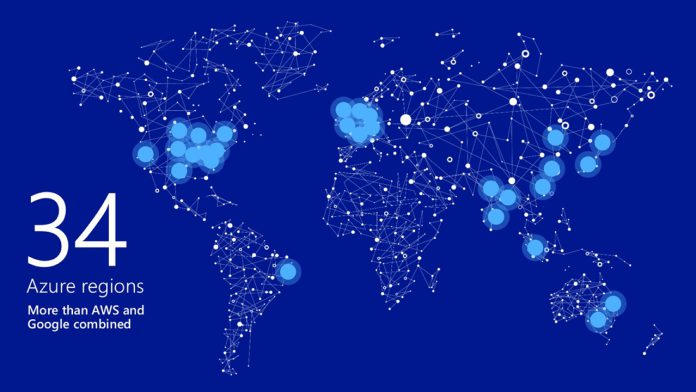At this week’s Deutsche Bank of Technology conference, Scott Guthrie, Executive Vice President of Microsoft´s Cloud and Enterprise Group has given a keynote speech and interview about Microsoft´s Azure cloud strategy.
Much of Guthrie’s interview focuses on Azure’s biggest competitor, AWS. It’s no secret that the two providers have been battling prices for years, but according to the Cloud head that’s no longer the focus.
“For the most part we’re not competing on price,” he says, “…typically we’re competing more on value.” According to him, Microsoft´s real fight instead is more about providing better performance, better innovation, better service.
Price saving on individual VMs is historical. Instead, says Guthrie, the cost savings come from the flexibility to scale up and down. This is particularly applicable to the financial industry, who scale up and down depending on the state of the bond market.
Despite the new focus, the executive makes it clear that Microsoft is not just happy to live in the shadow of AWS. “We focused on a couple of things with Azure to try to differentiate,” he says. “We’re No. 2 and aspire to be No. 1.”
Microsoft Cloud Advantages
Guthrie made those differences clear in his keynote. Azure now covers 34 regions, more than AWS and Google combined. It has more certifications than any other Cloud provider, leads 17 Gartner Magic Quadrants and over 85% of Fortune 500 use Microsoft Cloud.
This is an embedded Microsoft Office presentation, powered by Office Online.
Much of that success is down to Microsoft’s flexibility. The company makes an effort to make data residency agreements with each country. Furthermore, it’s Microsoft’s hybrid capability that sets it apart:
“You can run your applications, you can run your data, you can run your code, not just in our data centers, but in your own and be able to easily bridge the existing investments that you already have to take advantage of the public cloud without having to rip and replace every system to do so.”
Of course, one of the big examples of this is BMW. At Build this year, Microsoft revealed that the car manufacturer is using Azure to make their cars smarter. Telemetry data goes through the Cloud, is analyzed, and ultimately used to create better products down the line.
The exec seems to think that this, combined with their scale, will pay off down the line. For Google, however, he isn’t so sure. The disadvantage comes from the company being a search-first company.
“The challenge I think they’re going to have is the lack of enterprise capability and then even the way they’ve built their infrastructure historically. It’s really been optimized for search.”
Google’s reach only covers four regions, which makes it difficult to move into other markets. According to Guthrie, this means that they can’t guarantee data will stay in the country, or meet regulatory needs.
It will be a challenge, and Microsoft is in for a big one too. Whether the Redmond giant can take the number one spot remains to be seen, and will depend on the innovations and decisions made over the next few years.
You can listen to Guthrie’s full talk for yourself here.






